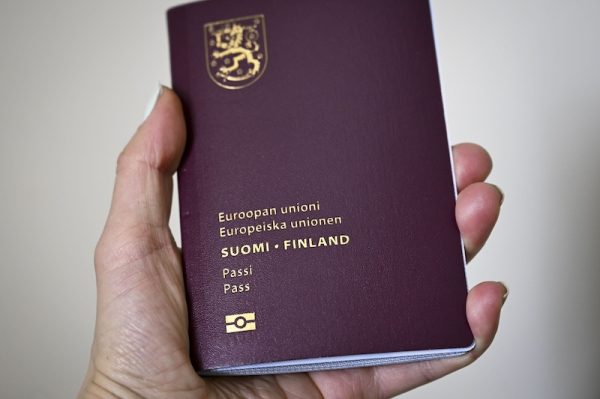Finland tightens citizenship rules with new limits on welfare use

Finnish passport. Photo: Emmi Korhonen / Lehtikuva
- Next Article Electricity price in Finland hits yearly high on Tuesday evening
Finland’s Parliament has approved new restrictions on citizenship eligibility, barring applicants who rely on social welfare for more than three months within two years.
The revised legislation, adopted by 103 votes to 58, forms the second stage of the government’s broader reform of the Citizenship Act. The main objective is to require applicants to demonstrate financial self-sufficiency through employment or business income, excluding most forms of public support.
Under the new law, applications will be rejected if the applicant has depended on unemployment or subsistence benefits for more than three months during the past two years. Only minor children and those over 65 are exempt.
The law also introduces tougher standards for lawful conduct. Anyone convicted of crimes will face longer mandatory waiting periods before they may apply. For example, an unconditional prison sentence now leads to an eight-year delay, compared to seven years under the previous rules.
Citizenship can also be denied on national security grounds, even if all formal criteria are otherwise met.
Mari Rantanen, Minister of the Interior from the Finns Party, has led the reforms. She said the changes aim to ensure that citizenship reflects full participation and commitment to Finnish society.
Applicants will now lose eligibility not only for giving false information, but also for obtaining nationality through other forms of fraud. This includes cases where someone else takes the required language exam on the applicant’s behalf.
The amendments also lower the threshold for revoking citizenship due to serious crimes. Individuals can now lose citizenship after being sentenced to two years in prison for treason, state offences or terrorism. Previously, the sentence had to be at least five years, with an overall offence severity of eight years.
The only government MP to vote against the proposal was Eva Biaudet of the Swedish People’s Party.
The Social Democratic Party (SDP), while backing the core elements of the reform, expressed reservations about the rigidity of the income requirements. In a dissenting opinion submitted to the Administration Committee, the SDP proposed a more flexible model.
Eveliina Heinäluoma, a member of the committee from the SDP, stated, “We support the condition of adequate income. But the government’s approach doesn’t account for temporary situations where well-integrated individuals may face unemployment through no fault of their own.”
She referred to Finland’s current high unemployment rate and said the proposed framework fails to consider individual activity or willingness to work.
The SDP proposed allowing some exceptions where applicants had been on support for more than three months but not more than six, provided the cause was temporary and outside the applicant’s control.
The updated law marks the second of three planned phases in the reform of Finnish citizenship legislation. The first phase extended the minimum residence period for naturalisation from five to eight years. It took effect in October 2024.
The third phase will introduce a citizenship test covering Finnish society, geography, history, and daily life. A legislative proposal is expected during the ongoing autumn session.
HT
- Next Article Electricity price in Finland hits yearly high on Tuesday evening
Source: www.helsinkitimes.fi
